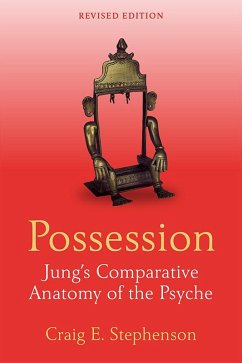Dieser Download kann aus rechtlichen Gründen nur mit Rechnungsadresse in A, B, BG, CY, CZ, D, DK, EW, E, FIN, F, GR, HR, H, IRL, I, LT, L, LR, M, NL, PL, P, R, S, SLO, SK ausgeliefert werden.
"Craig Stephenson brings luminous insights to bear on murky, alarming and difficult terrain, and, in times of sharp conflict between various theologies and dogmatisms, opens a new horizon for thinking fruitfully about the complexities of consciousness and self. This is a rich and lucid book of striking sensitivity and thoughtfulness." - Marina Warner, mythographer, Professor, Birbeck, University of London
"Dr Stephenson makes the remarkable and convincing argument that Jung's understanding of the phenomena of possession lies at the basis of his analytical psychology. Drawing on contemporary insights on possession from anthropology as well as from psychology, and without subordinating either discipline to the epistemological or conceptual apparatus of the other, Dr Stephenson re-theorizes how Jung's notion of possession may be used to open and illuminate the problematic space between society, patient and therapist in the therapeutic encounter." - Edward Schieffelin, Reader Emeritus, Department of Anthropology, University College London
"Stephenson has written a book for those with Jungian proclivities, as well as those highly critical of such proclivities, a book for anthropologists and historians as well as poets, a book to read not once but many times." - Gretchen Heyer, Journal of Analytical Psychology


